Syed Yusha Kareem
OWLOOP: A Modular API to Describe OWL Axioms in OOP Objects Hierarchies
Dec 31, 2021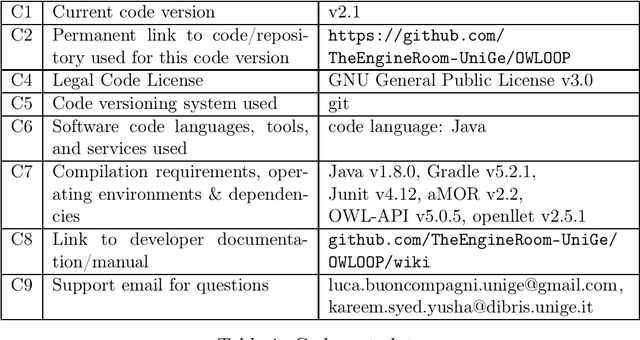

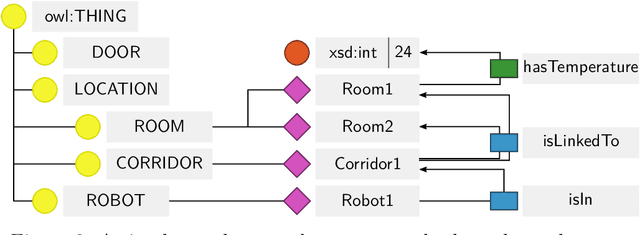

Abstract:OWLOOP is an Application Programming Interface (API) for using the Ontology Web Language (OWL) by the means of Object-Oriented Programming (OOP). It is common to design software architectures using the OOP paradigm for increasing their modularity. If the components of an architecture also exploit OWL ontologies for knowledge representation and reasoning, they would require to be interfaced with OWL axioms. Since OWL does not adhere to the OOP paradigm, such an interface often leads to boilerplate code affecting modularity, and OWLOOP is designed to address this issue as well as the associated computational aspects. We present an extension of the OWL-API to provide a general-purpose interface between OWL axioms subject to reasoning and modular OOP objects hierarchies.
* This version of the manuscript has been published on the SoftwareX Elsevier journal in January 2022. The manuscript is made of 21 pages, which include 3 tables, 6 figures, and 4 listings
Human Activity Recognition Models in Ontology Networks
May 05, 2021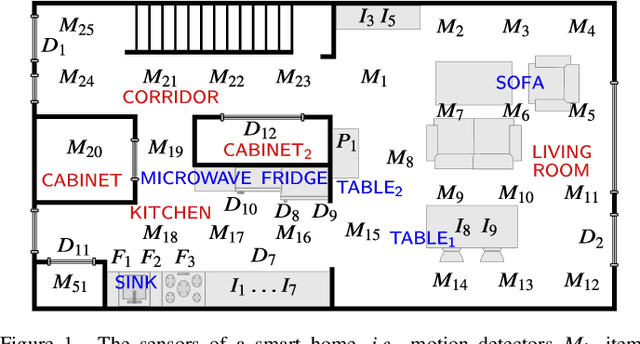
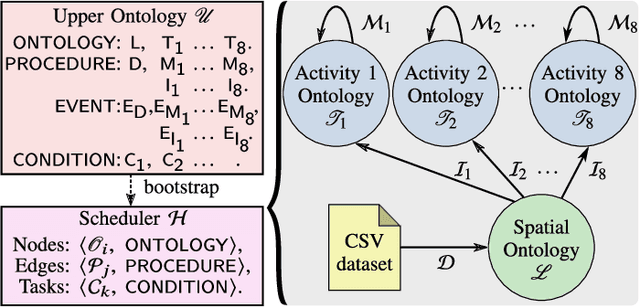

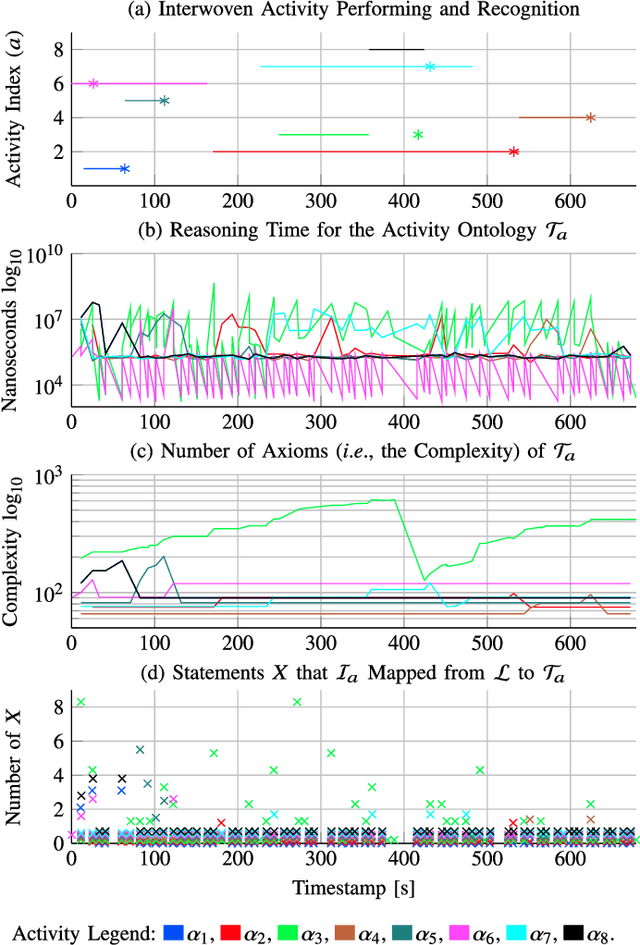
Abstract:We present Arianna+, a framework to design networks of ontologies for representing knowledge enabling smart homes to perform human activity recognition online. In the network, nodes are ontologies allowing for various data contextualisation, while edges are general-purpose computational procedures elaborating data. Arianna+ provides a flexible interface between the inputs and outputs of procedures and statements, which are atomic representations of ontological knowledge. Arianna+ schedules procedures on the basis of events by employing logic-based reasoning, i.e., by checking the classification of certain statements in the ontologies. Each procedure involves input and output statements that are differently contextualised in the ontologies based on specific prior knowledge. Arianna+ allows to design networks that encode data within multiple contexts and, as a reference scenario, we present a modular network based on a spatial context shared among all activities and a temporal context specialised for each activity to be recognised. In the paper, we argue that a network of small ontologies is more intelligible and has a reduced computational load than a single ontology encoding the same knowledge. Arianna+ integrates in the same architecture heterogeneous data processing techniques, which may be better suited to different contexts. Thus, we do not propose a new algorithmic approach to activity recognition, instead, we focus on the architectural aspects for accommodating logic-based and data-driven activity models in a context-oriented way. Also, we discuss how to leverage data contextualisation and reasoning for activity recognition, and to support an iterative development process driven by domain experts.
* The paper has been accepted for publication in the IEEE Transactions on Cybernetics journal on April 2021 and with DOI 10.1109/TCYB.2021.3073539. It is an extension of arXiv:1707.03988v1 and it is related to the arXiv:1809.08208v1 article. It contains 20 pages, 6 figures, 4 tables and 2 Appendices
Arianna+: Scalable Human Activity Recognition by Reasoning with a Network of Ontologies
Sep 21, 2018Abstract:Aging population ratios are rising significantly. Meanwhile, smart home based health monitoring services are evolving rapidly to become a viable alternative to traditional healthcare solutions. Such services can augment qualitative analyses done by gerontologists with quantitative data. Hence, the recognition of Activities of Daily Living (ADL) has become an active domain of research in recent times. For a system to perform human activity recognition in a real-world environment, multiple requirements exist, such as scalability, robustness, ability to deal with uncertainty (e.g., missing sensor data), to operate with multi-occupants and to take into account their privacy and security. This paper attempts to address the requirements of scalability and robustness, by describing a reasoning mechanism based on modular spatial and/or temporal context models as a network of ontologies. The reasoning mechanism has been implemented in a smart home system referred to as Arianna+. The paper presents and discusses a use case, and experiments are performed on a simulated dataset, to showcase Arianna+'s modularity feature, internal working, and computational performance. Results indicate scalability and robustness for human activity recognition processes.
 Add to Chrome
Add to Chrome Add to Firefox
Add to Firefox Add to Edge
Add to Edge